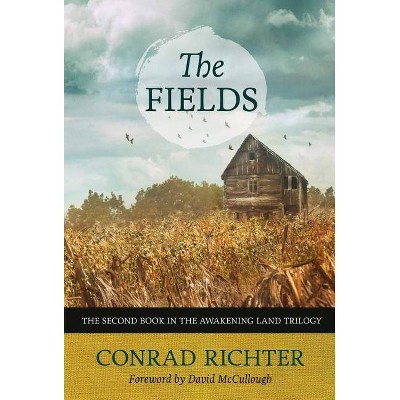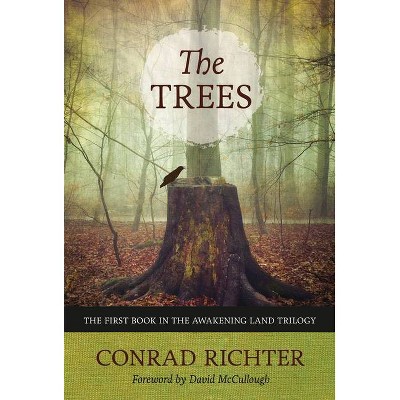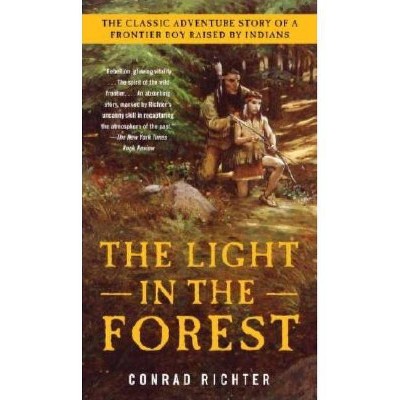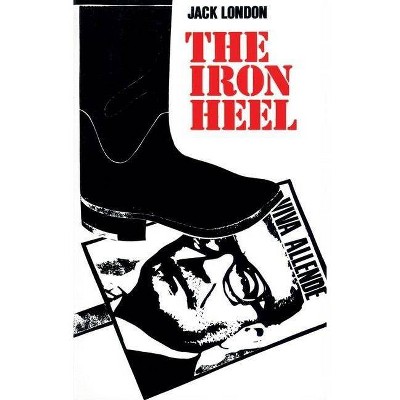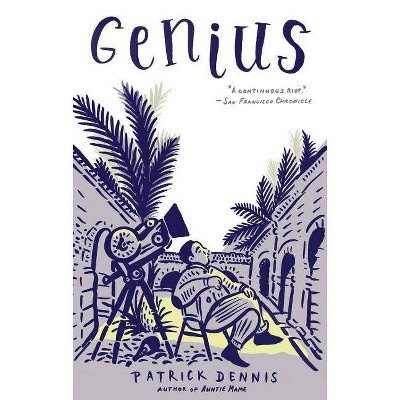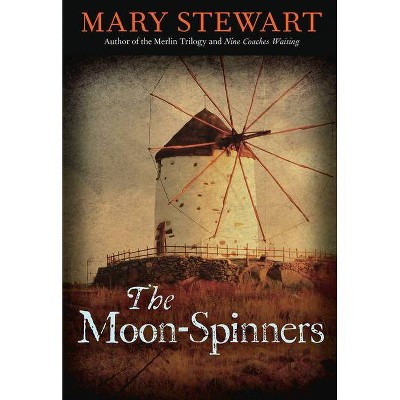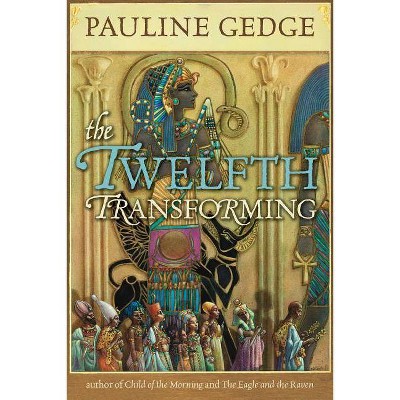The Town - (Rediscovered Classics) by Conrad Richter (Paperback)
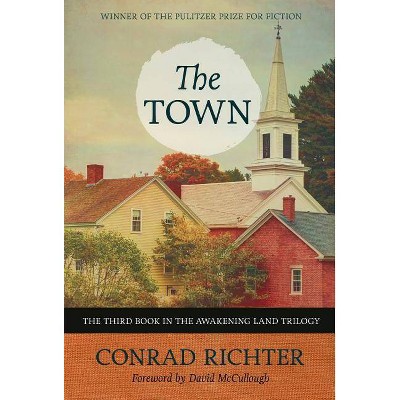
Similar Products
Products of same category from the store
AllProduct info
<p/><br></br><p><b> About the Book </b></p></br></br>"Published by arrangement with Alfred A. Knopf, an imprint of the Knopf Doubleday Publishing Group, a division of Penguin Random House, LLC"--Title page verso.<p/><br></br><p><b> Book Synopsis </b></p></br></br>The Town</em>, the longest novel of the trilogy, won the 1951 Pulitzer Prize. It tells how Sayward completes her mission and lives to see the transition of her family and her friends, American pioneers, from the ways of wilderness to the ways of civilization. Here is the tumultuous story of how the Lucketts grow to face the turmoil of the first half of the 19th century.<p/><br></br><p><b> Review Quotes </b></p></br></br><br>"The trilogy is unmistakably a single work, unified in its design, sustained in its inspiration. It pulses from beginning to end with the passion of the land, the flesh, and the spirit. It has the American heartbeat in it. Cut it and it bleeds American." --Edward Wagenknecht, <i>Chicago Sunday Tribune</i><p>"Simple, unadorned, the prose flows fluidly and rhythmically, power emerging from its simplicity, striking you with the impact of a bullet." --M. G. Checrallah, <i>Library Journal</i><br /><br />"'<i>The Town'</i> stands on its own as an entity and may be read on its own as a full, rich and comprehensive novel based upon the lives of ordinary people, brave and even heroic in their own small ways. They talk and act like real people and while here and there, one encounters a crazy one or a criminal, these exist not as specimens for a psychiatrist crowding at the whole of a scene to the exclusion of all else, but as your neighbors and mine in any ordinary American community. Not one of these characters is dull, for the author has that power of good novelists which finds interest in everything, so that he is able to make even the bore an illuminating study of boredom." --Louis Bromfield, <i>New York Herald Tribune Book Review</i><br /><br />"There are scenes of sorrow, humor, and excitement; but overshadowing everything like a tall tree in a meadow is Sayward herself. . . . When we leave her, revered and respected by the town, but dying within sound of the new-fangled trains, . . . we feel a personal loss. . . . She might almost stand for a symbol of the pioneer woman. Maybe she is, but more than that she has at least for this reviewr become flesh and blood, an acquaintance, not a charactarization in a book." --H. S. Arnow, <i>Saturday Review of Literature</i><br /> <br />"There are in the literature of the world few works of historical fiction that make the reader feel that the writer must have been a witness to what he describes; he was actually there and came back--a transmigrated soul--to tell a story. The Awakening Land is such a work . . . it would be a great novel in any literature." --Isaac Bashevis Singer<br /><br /> </p><br><p/><br></br><p><b> About the Author </b></p></br></br>Before becoming one of America's greatest novelists, <b>Conrad Richter</b> (1890-1968) worked driving a wagon over the mountains of Pennsylvania, in a machine shop, in a small-town bank, on a farm, in his own timber business, and reporting for newspapers, among other jobs. A dogged researcher, he wrote fifteen novels, most of them set on the American frontier, including <i>The Light in the Forest</i> and <i>The Sea of Grass</i>, as well as numerous short stories. His novels won the National Book Award, the Pulitzer Prize, and many other accolades.<br /><br /><b>David McCullough</b> is the author of <i>The Wright Brothers</i>, <i>John Adams</i>, <i>1776</i>, and many other books of American history and biography.<br />
Price History
Price Archive shows prices from various stores, lets you see history and find the cheapest. There is no actual sale on the website. For all support, inquiry and suggestion messages communication@pricearchive.us
